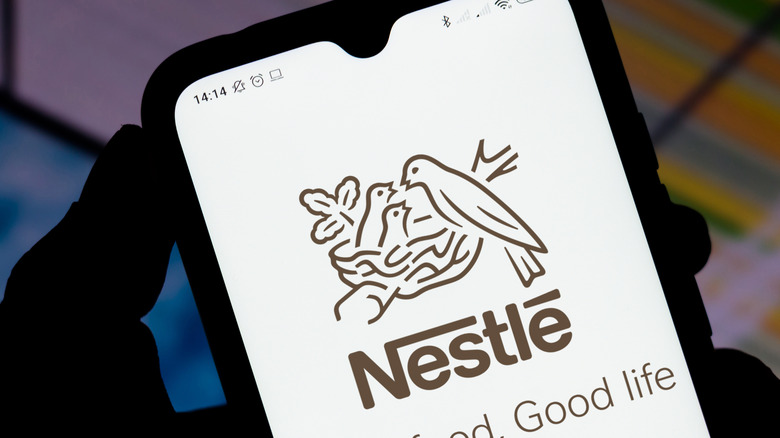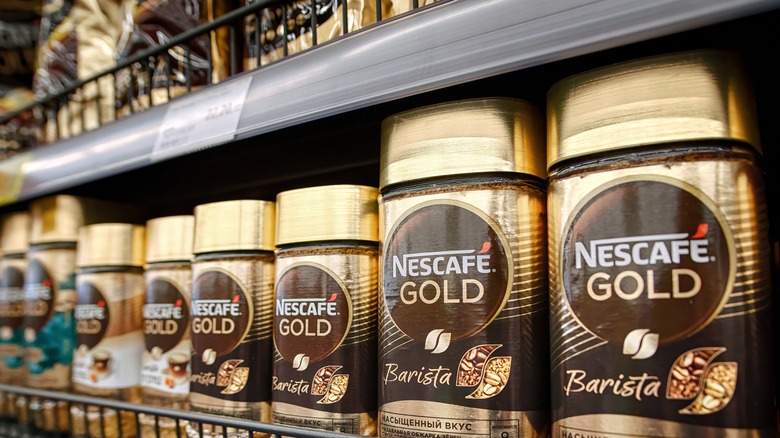Nestlé Reports That Products Rated As 'Healthy' Make Up 37% Of Its Sales
At first glance, a 37% "healthy" rating from a major food supplier raises eyebrows. But food statistics can be nuanced, depending on the type of data collected, the foods included, and who's doing the rating. Nestlé may have learned the hard way that nutritional transparency can be a double-edged sword.
As the largest food company in the world, with sales topping $93 billion in 2022, per Forbes, Nestlé's stated commitment to nutrition improvement matters – as do benchmark statistics of accountability.
After including a nutritional profile within the company's 2022 Annual Report, Nestlé revealed in March 2023 that more than 60% of its products, excluding PetCare, fall below the "healthy" criteria established by the Australian Health Star Rating (HSR) for packaged foods and beverages.
A chart supplied by Nestlé shows that, within the stated parameters, only 37% of its global portfolio garners an HSR rating at or above 3.5 stars out of 5. The HSR does not report nutritional benefits of specialized nutrition products, which typically sell through Nestlé Health Science or its separate Nutrition business, leaving the company to explain how that skews overall perception.
Nutritional benchmarks
Health Star Rating (HSR) examines each product and issues ratings based on individual characteristics, which can either lower or increase overall scores. For example, sugar, sodium, saturated fat, and total energy can ding an HSR score, while healthy fiber and protein can elevate it, along with ingredients like vegetables, nuts, and fruits.
Some Nestlé products consequently receive "healthy" scores. Others don't come close, such as 99% of those within the company's confectionery and ice cream portfolio. A Nestlé presentation reportedly acknowledged this (via Consumer Affairs). However, by excluding healthier products from the rating system, a complete picture is elusive. A company spokesman pointed out that roughly half of Nestlé's sales come from unrepresented categories. These include ones already adhering to highly regulated nutrition standards, such as specialized health products.
The same spokesperson reiterated Nestlé's commitment to improved nutritional values, noting a 14% to 15% product decrease in sugar and sodium over a seven-year period. But the very nature of some Nestlé foods will never meet "healthy" standards, noted in an internal company discussion, leaving it to consumers to balance diets and moderate consumption.
As a global company with product revenue from 188 countries, varying rating systems complicate health statistics. Per Nestlé, 13 of those countries are included in nutritional value reporting, but each adheres to its own government-endorsed nutrient profiling system. Therefore, regional reporting at "market level" will inevitably result in different outcomes. Other prominent global food corporations, including Unilever, have unveiled improved nutrition goals using similar regional metrics.

